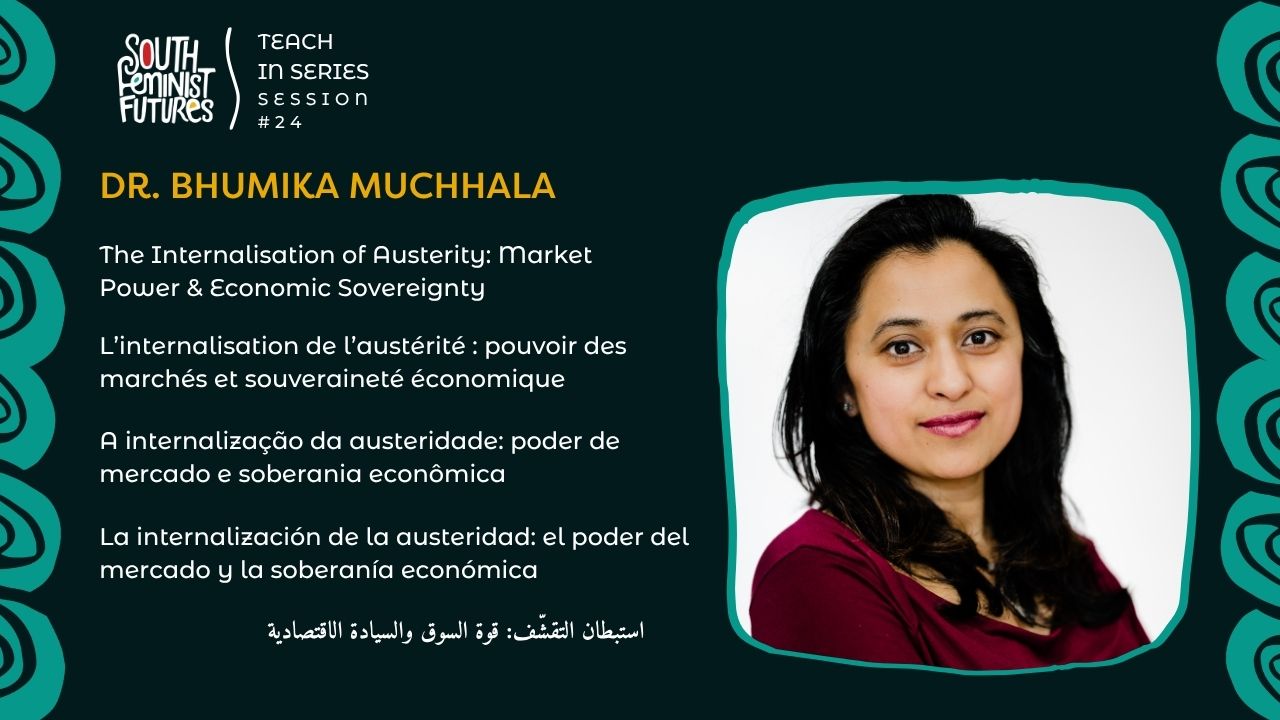The 24th session of our Political Economy Teach-in Series, “The Internalisation of Austerity: Market Power & Economic Sovereignty” with Dr. Bhumika Muchhala, was held on June 18, 2025.
Dr. Bhumika Muchhala has 20 years of experience in global justice advocacy and analysis, leading changemaking across multiple scales from intergovernmental negotiations at the UN to social movements. She is a senior advisor at the Third World Network and Adjunct Lecturer in global political economy and governance at The New School. Her transdisciplinary research and scholarship includes international and feminist political economy, political ecology, and critical theories from the global South, such as dependency, colonialism, postcolonialism and decoloniality.
The session explored how today’s international financial architecture reproduces power imbalances rooted in colonial and imperial history. We examined how austerity is internalised through fiscal rules and ideas of macroprudential or sound finance, as well as the significant role of Credit Rating Agencies and the International Monetary Fund surveillance function. Employing dependency and decolonial theories, this teach-in analysed how the current era of financial market rule normalises and embeds compliance to an austerity bias through both policy and knowledge channels, which ultimately poses a critical challenge to the social contract, economic sovereignty, and developmental states across the South.
Our South Feminist Political Economy Teach-in Series aims to strengthen intergenerational dialogue and build a cross-regional feminist constituency. The series covers various topics to interrogate and strengthen understanding of issues shaping conditions in the Global South.
We have curated a special reading list of resources on the topic of this session, available on our South Feminist Knowledge Hub. It is designed to deepen your understanding of the themes and inspire meaningful discussion – featuring powerful contributions from authors and thinkers across the Global South.
